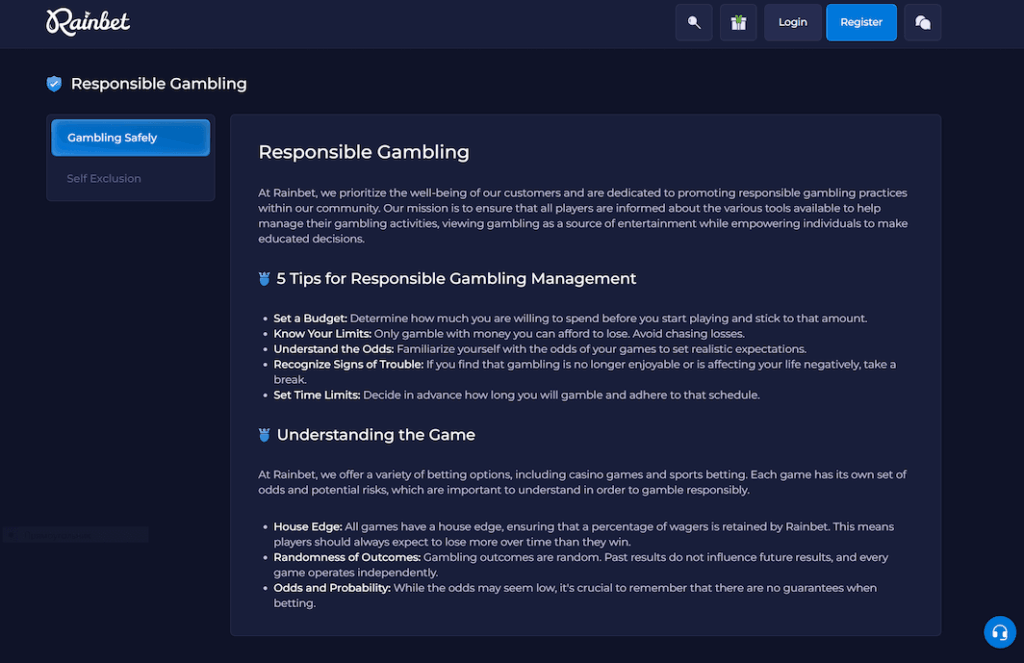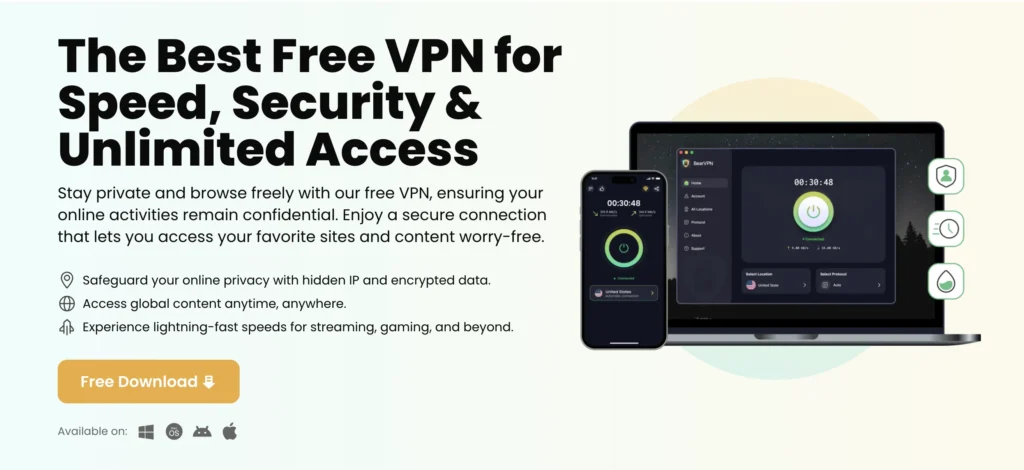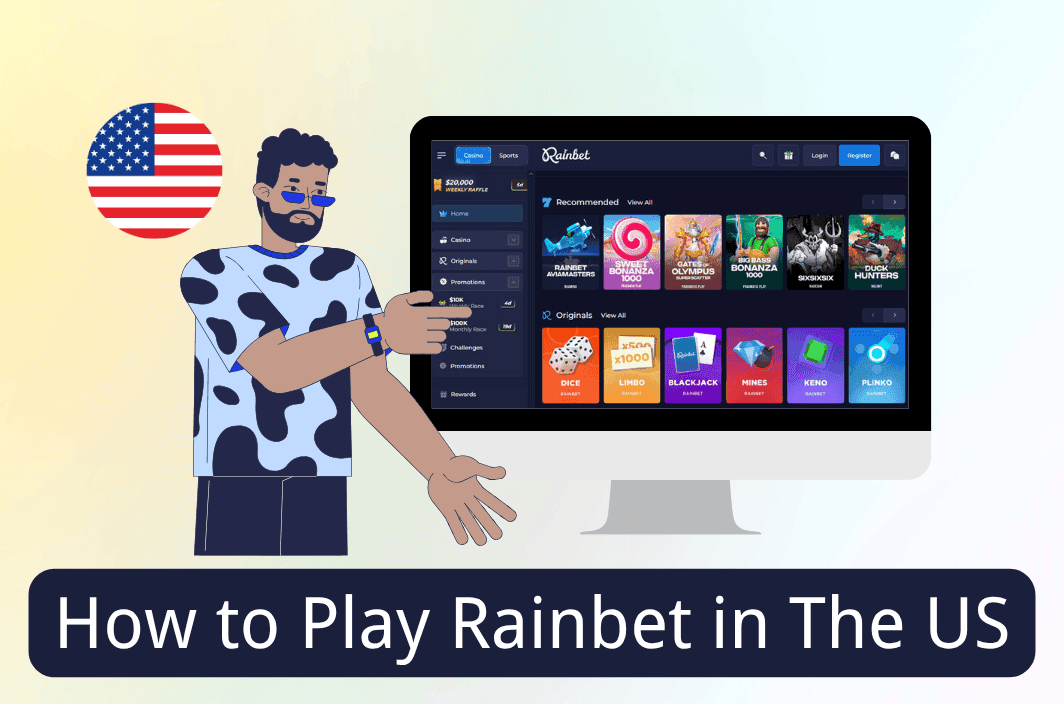Rainbet’s rapid rise has drawn plenty of curiosity, but the path for U.S.-based players isn’t straightforward. Availability depends on the site’s own Terms, as well as a maze of federal and state rules, and those guardrails directly affect sign-ups, payments, and withdrawals.
This guide clarifies what’s actually possible in 2025: where eligibility stands for U.S. residents, how VPN and KYC policies shape risk, which “workarounds” backfire at cash-out, and what legal alternatives exist—such as state-licensed platforms and sweepstakes models. The goal is practical clarity so you can make informed, compliant choices without relying on rumor or risky shortcuts.
Current Availability & Legal Context in the U.S.
Before you attempt anything, understand the baseline. Rainbet’s availability is shaped by two forces: the site’s own Terms and broader U.S. laws that affect online gambling and payments. Getting this context right helps you avoid account issues and costly mistakes.
Where things stand today
Rainbet operates internationally, but access and eligibility depend on your location. In the United States, online gambling is governed by a patchwork of federal restrictions and state-level permissions. Even where certain forms of online betting are legal, many offshore crypto casinos remain off-limits by their own Terms or by local rules.
Key federal touchpoints
- Wire Act & UIGEA: U.S. federal laws target the transmission of certain betting information and restrict payment processing for unlawful internet gambling. They don’t legalize or ban every form of online gaming by themselves, but they create compliance pressure on banks and processors.
- State-by-state reality: Some states permit regulated online casinos, poker, or sports betting via licensed operators; others do not. Across this landscape, access to offshore sites typically sits outside state-licensed frameworks, and players can face KYC, payment, or withdrawal friction.
Why this matters
If a platform is unavailable in your jurisdiction or prohibits your location under its Terms, attempting to bypass checks can lead to account freezes, confiscated winnings, or permanent bans—especially when verification is requested.
What Rainbet’s Terms Say About Location & VPNs
The clearest signals about what you can and cannot do come from the platform’s own Terms. Read them. They outline eligibility, prohibited tools, and the consequences of violating geographic or identity rules.
Eligibility and restricted locations
Most international platforms reserve the right to refuse service in jurisdictions where they’re not licensed or where local laws are unclear. If the Terms list restricted countries or require users to be in a “legal jurisdiction,” U.S.-based users generally do not qualify unless explicitly stated.
VPNs, proxies, and location masking
Rainbet’s Terms (like many operators’) prohibit the use of VPNs, proxies, or similar tools to conceal or falsify your location. Violations can trigger:
- Immediate account suspension for breaching T&Cs.
- Winnings withheld pending investigation.
- Verification escalations (enhanced KYC/AML checks).
KYC can override everything
Even if you created an account while appearing to be in an approved country, KYC requests can require proof of identity and residence. If your real location doesn’t match, withdrawals are likely to be blocked, and the account may be closed.

Common “Workarounds” Online—and Their Real Risks
You’ll find tutorials claiming “just use a VPN,” “deposit crypto and you’re fine,” or “pick X country and it works.” Treat these as high-risk anecdotes. Below are the typical tactics people discuss—and the potential downsides most guides gloss over.
What people try (not recommendations)
- VPN or proxy hopping: Changing IPs to appear in a different country.
- Mobile data vs. Wi-Fi switching: Hoping to evade location checks.
- Crypto-only play: Assuming crypto deposits guarantee frictionless access.
- No-KYC myths: Believing smaller deposits or certain tokens avoid verification.
Why are these paths risky?
- Device and browser fingerprints: Platforms detect patterns beyond IP address (e.g., time zone, device language, cookies, DNS behavior).
- Geo-IP plus payment trails: Even if deposits are crypto, fiat on-ramps/off-ramps, exchange KYC, and tax filings can reintroduce your real location.
- T&Cs trump all: A single Terms breach (VPN use, falsified location) can lead to forfeited funds.
- Retroactive checks: Accounts that seem “fine” can be flagged during big wins or withdrawals—precisely when it hurts most.
Bottom line
“Workarounds” can appear to function until they don’t. The longer you play while out of compliance, the higher the chance that verification or risk controls unwind your progress.
Safer, Legal Alternatives for U.S. Players
If your goal is to play without anxiety about verification, locked withdrawals, or Terms violations, there are credible paths within U.S. rules. They won’t mirror every feature of an offshore crypto casino, but they do reduce legal and financial risk.
1) State-licensed, regulated operators
- Where available: Several states offer licensed online casinos, poker rooms, or sportsbooks.
- Advantages: Clear consumer protections, dispute channels, identity verification up front, and transparent payment rails.
- Trade-offs: Availability is limited by state lines; game catalogs differ; not all states offer full casino options.
2) Sweepstakes and social casino models
- How they work: You play with “coins” or “sweeps” in promotions that offer prizes redeemable for cash or gift cards.
- Why people choose them: Broad nationwide reach (varying by platform), legal opinions tailored to U.S. promo laws, and no need to spoof locations.
- Considerations: Read each site’s eligibility rules; verify prize redemption processes and timelines.
3) Skill-based and fantasy formats
- Examples: Daily fantasy sports (where legal), peer-to-peer skill games, and trivia/skill challenges.
- Pros: Often clearer regulatory status; built-in identity and payment compliance.
- Cons: Different gameplay loop than traditional casino titles.
Choosing what fits
If you prioritize certainty over edge-case access, these alternatives keep you aligned with U.S. rules and minimize the chance of sudden account interruptions.
Account, Payments & Tax Notes (If You Still Proceed)
Some readers will still contemplate offshore play. If that’s you, treat this as a risk checklist—not an endorsement. The goal is to reduce self-inflicted damage if you later face KYC, withdrawal holds, or reporting obligations.
Account hygiene
- Truthful information: Inconsistent personal data is the fastest route to frozen accounts.
- One account, one person: Duplicate or shared accounts are easily flagged.
- Document readiness: If KYC happens, expect to provide government ID and proof of residence that aligns with your claimed location.
Payments and custody
- Crypto on- and off-ramps: Buying crypto typically requires KYC at exchanges. Your fiat trail may be reviewable.
- Stablecoins ≠ invisibility: They can simplify transfers, but they don’t erase Terms violations or tax duties.
- Self-custody basics: If you self-custody, safeguard seed phrases and understand network fees and confirmation times.
Withdrawals and disputes
- Small test withdrawals: If you insist on playing, test redemption early before increasing stakes.
- Clear records: Keep transaction IDs, timestamps, and support transcripts.
- Expect delays: Reviews often intensify after large wins or irregular activity.
Taxes and reporting
- U.S. perspective: Gambling winnings are generally taxable. Crypto gains/losses may also trigger capital gains events. Consult a qualified tax professional; maintain detailed records of deposits, withdrawals, and conversions.
VPN-Labeled Section: Privacy-First Tools vs. T&Cs
Many readers ask if a VPN can “unlock” Rainbet. The honest answer: a VPN can improve privacy and general network stability, but using it to bypass location controls can violate platform Terms. If you use a VPN, use it responsibly and lawfully.
What a VPN can help with (in general)
- Network privacy: Encrypts traffic on public Wi-Fi and reduces casual tracking.
- Connection stability: Can route around local congestion for more consistent latency.
- IP hygiene: Rotating IPs can reduce repeated-connection friction in everyday browsing.
What a VPN does not guarantee
- Access: It does not make you eligible where you’re restricted.
- Anonymity from KYC: Identity checks can still reveal your true residence.
- Withdrawal safety: T&Cs can still void winnings if location rules are breached.
A privacy-focused option to consider (not a bypass tool)
If you value an easy setup and network hygiene in everyday use, BearVPN offers a one-tap interface on iOS, Android, Mac, and Windows, RAM-only servers for privacy-focused design, quick IP rotation via global locations, and a per-app VPN to choose which apps use the tunnel. It also includes DNS leak protection and traffic obfuscation to reduce tracking attempts. Use cases: securing hotel Wi-Fi, minimizing ad trackers, or stabilizing general connectivity.
Do not use any VPN, including BearVPN, to break laws or violate any platform’s Terms, and note that access to geo-restricted services is not guaranteed.

FAQ
Q1: Is Rainbet available to players physically located in the United States?
A1: In general, no. Access is restricted by the platform’s Terms and by U.S. legal considerations. Attempting to play from the U.S. can lead to account and withdrawal issues.
Q2: Can a VPN make me eligible to play Rainbet in the U.S.?
A2: A VPN cannot change your legal eligibility and may violate the platform’s Terms if used to conceal your location. That can result in suspended accounts and withheld winnings.
Q3: What happens if KYC is requested after I’ve been playing?
A3: You’ll likely need to prove identity and residence. If they don’t match the location you claimed, expect withdrawal blocks and potential account closure.
Q4: What are legal alternatives for U.S. players who want a similar experience?
A4: Depending on your state, consider licensed operators, or look at sweepstakes/social casino formats that operate under U.S. promotional rules. Always check each site’s eligibility.
Q5: Are crypto deposits safer or more private than cards?
A5: Crypto may simplify transfers, but it isn’t a loophole. On-ramps typically require KYC, and you still have tax reporting duties. It does not override a platform’s Terms.
Conclusion
If you’re searching for how to play Rainbet in the US, the key takeaway is simple: platform Terms and U.S. rules set hard boundaries, and “workarounds” carry real risk—especially at withdrawal time. For peace of mind, choose legal, state-licensed, or sweepstakes alternatives. If you do use a VPN for everyday privacy, treat it as a security tool—not a means to bypass restrictions—and always follow the law and the site’s Terms.



